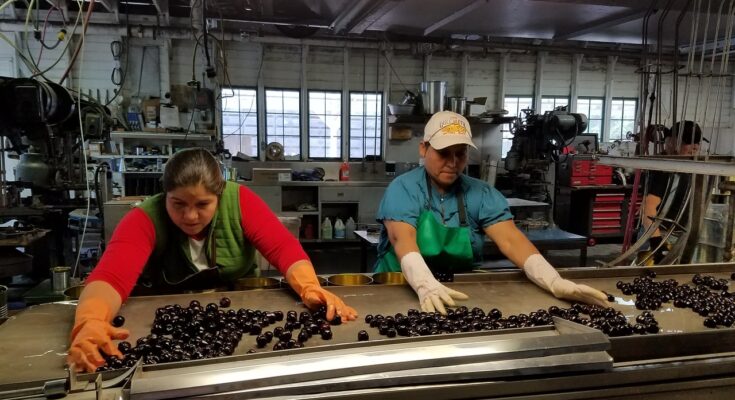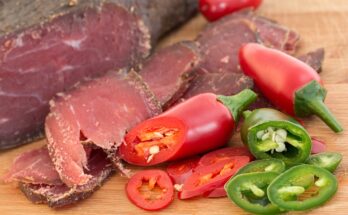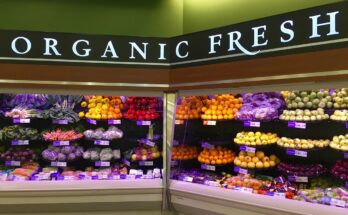Are you curious about what lies ahead for the food processing industry? Get ready to be amazed by the exciting trends and predictions that are shaping the future of this dynamic field.
With a rising demand for sustainable food products, the industry is gearing up to meet the needs of environmentally conscious consumers like you.
Artificial intelligence is revolutionizing food processing, allowing for improved efficiency and quality control.
As people strive for healthier lifestyles, there is a noticeable shift towards plant-based and alternative protein sources, offering a wide variety of options for your dietary preferences.
Advanced packaging and preservation techniques are also on the rise, ensuring that your food stays fresh and safe for longer periods.
And get ready to witness the integration of automation and robotics in food manufacturing, streamlining processes and enhancing productivity.
Buckle up, because the future of the food processing industry is brimming with innovation and possibilities.
Rising Demand for Sustainable Food Products
If you’re looking to make a difference and contribute to a more sustainable future, you’ll be thrilled to know that the food processing industry is experiencing a rising demand for sustainable food products.
Consumers are increasingly concerned about the environmental impact of their food choices and are actively seeking out products that are produced with minimal harm to the planet. This shift in consumer behavior has led to a surge in companies offering sustainable food options, from plant-based alternatives to eco-friendly packaging.
Not only are these products better for the environment, but they also often boast health benefits, such as being free from artificial additives and preservatives. By opting for sustainable food products, you can play a part in reducing the carbon footprint of the food processing industry and contribute to a more eco-conscious future.
Integration of Artificial Intelligence in Food Processing
With the integration of artificial intelligence, the food processing sector is poised to undergo a transformative revolution. AI is being utilized across various stages of food processing, from production to packaging.
One key application is in quality control, where AI algorithms can quickly identify defects or contaminants in food products, ensuring a higher level of safety and reducing the risk of recalls.
AI-powered robots are also being employed in processing plants to automate repetitive tasks such as sorting, cutting, and packaging, which increases efficiency and reduces labor costs.
Additionally, AI is helping to optimize supply chain management by analyzing data on demand, inventory, and production, enabling companies to make more accurate forecasts and reduce waste.
As AI technology continues to advance, its integration in food processing holds tremendous potential to revolutionize the industry and improve the overall quality of food products.
Shift towards Plant-Based and Alternative Protein Sources
Embrace the shift towards plant-based and alternative protein sources as you discover the diverse and sustainable options available to enhance your diet and contribute to a healthier planet.
With the growing awareness of the environmental impact of animal agriculture and the increasing demand for healthier food choices, more and more people are turning to plant-based and alternative protein sources.
These options not only provide essential nutrients but also offer a wide range of flavors and textures that can satisfy even the most discerning palate.
From plant-based meats and dairy alternatives to protein-rich legumes and grains, there is an abundance of choices to suit every taste and dietary preference.
By incorporating these alternatives into your diet, you can enjoy delicious meals while reducing your carbon footprint and supporting a more sustainable food system.
Adoption of Advanced Packaging and Preservation Techniques
Explore the benefits of adopting advanced packaging and preservation techniques to enhance the quality and shelf life of your food choices. By embracing these techniques, you can ensure that your food remains fresh and safe for longer periods.
Advanced packaging methods, such as modified atmosphere packaging, create an optimal environment for food, preserving its taste, texture, and nutritional value. This helps to reduce food waste and extend the shelf life of perishable items.

Additionally, advanced preservation techniques, like high-pressure processing and cold plasma treatment, eliminate harmful bacteria while maintaining the food’s quality. These methods also minimize the need for chemical preservatives, making your food healthier and more natural.
By incorporating these innovative techniques into your food processing practices, you can meet the growing demand for fresh, convenient, and sustainable food options.
Embracing Automation and Robotics in Food Manufacturing
By incorporating automation and robotics into food manufacturing, you can revolutionize your production processes and improve efficiency. Automation enables tasks such as sorting, packaging, and labeling to be performed with precision and speed, reducing human error and increasing productivity.
Robotics, on the other hand, can handle complex tasks that require delicate handling, such as mixing ingredients or assembling products. With the help of machines, you can streamline your operations, reduce labor costs, and enhance product quality.
Additionally, automation and robotics can also ensure food safety by minimizing contamination risks and adhering to strict hygiene standards. By embracing this technology, you can stay ahead of the competition, meet increasing consumer demands, and pave the way for a more sustainable and innovative future in the food processing industry.
Conclusion
So there you have it, the future of the food processing industry is looking bright and innovative.
With the rising demand for sustainable food products, integration of artificial intelligence, shift towards plant-based and alternative protein sources, adoption of advanced packaging and preservation techniques, and embracing automation and robotics, the industry is set to revolutionize the way we produce and consume food.
It’s an exciting time to be a part of this thriving industry, so get ready for a deliciously sustainable future!




